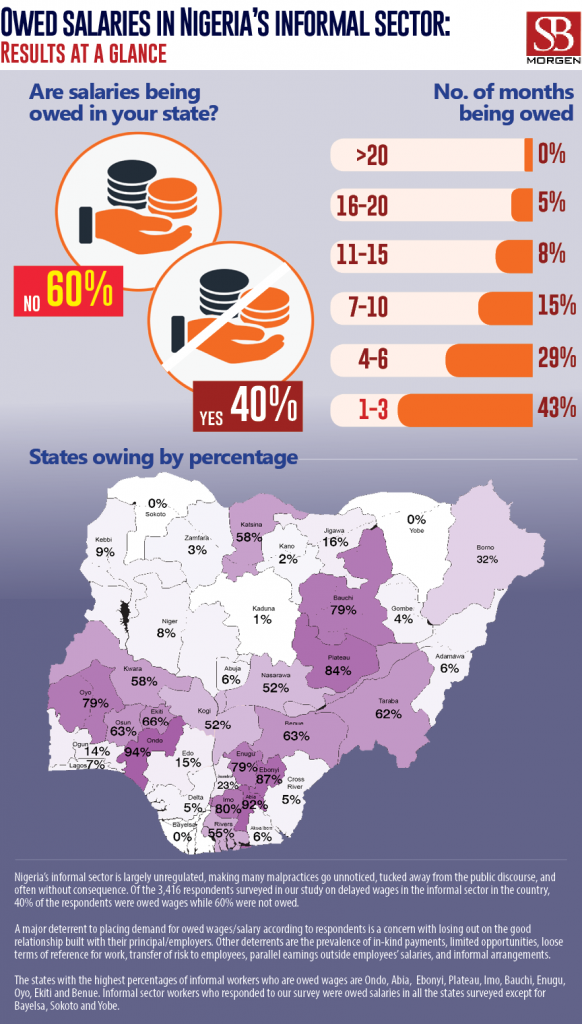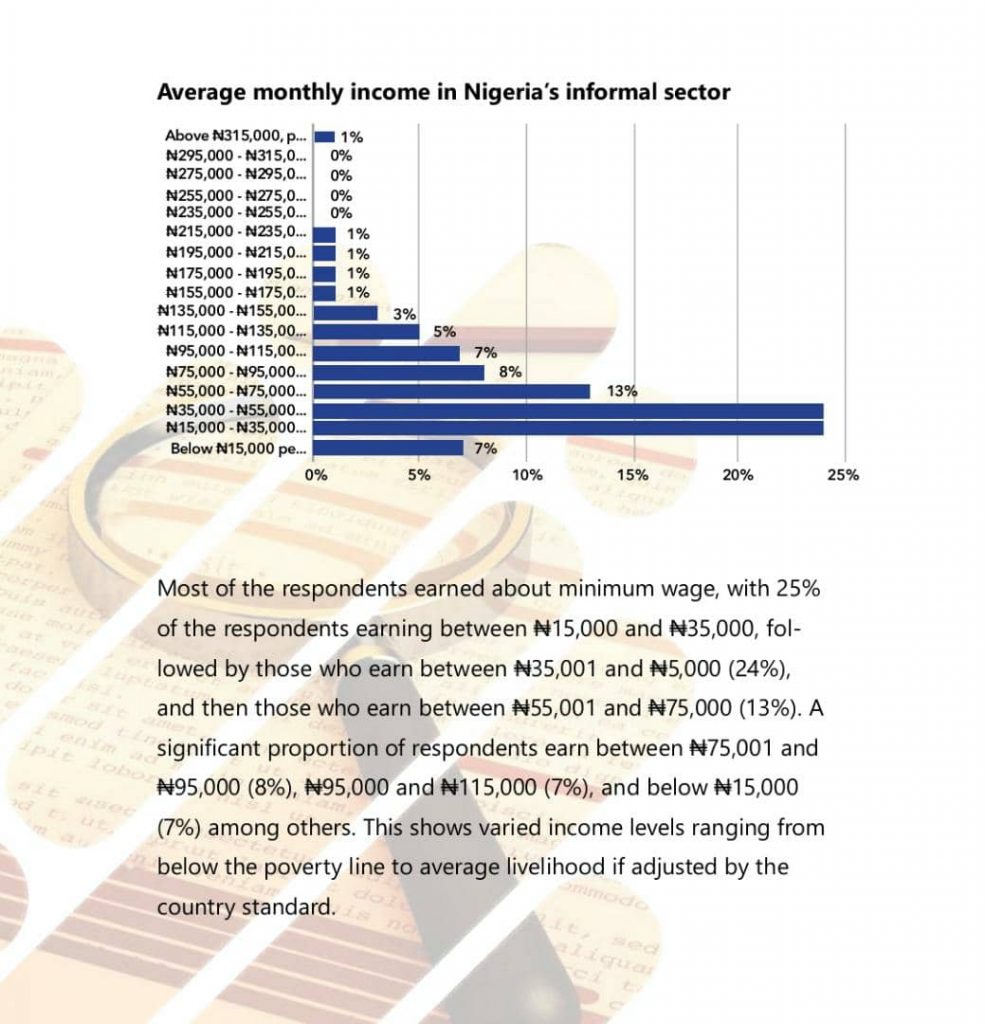Working in Nigeria’s unregulated informal sector is just as bad as working in the formal sector, SBM Intelligence, an Africa-focused geopolitical research and strategic communications consulting firm, has found.
In a report conducted by the organisation, 40 percent of the 3,416 Nigerian informal workers surveyed admitted to being owed salaries for periods ranging from one to 20 months.
However, what is more alarming is the workers’ acceptance of continued denial of due wages. Out of fear of job loss, labour relations with employers and incentives, they continue to work without pay.
READ ALSO: Protest in Abuja as N9.6bn Salary of Lawmakers’ Aides ‘Goes Missing’
The report reads in part, “A major deterrent to placing demand for owed wages/salary according to respondents is a concern with losing out on the good relationship built with their principal/employers. Other deterrents are the prevalence of in-kind payments, limited opportunities, loose terms of reference for work, transfer of risk to employees, parallel earnings outside employees’ salaries, and informal arrangements.
“The states with the highest percentages of informal workers who are owed wages are Ondo, Abia, Ebonyi, Plateau, Imo, Bauchi, Enugu, Oyo, Ekiti and Benue. Informal sector workers who responded to our survey were owed salaries in all the states surveyed except for Bayelsa, Sokoto and Yobe.”

According to the report, a 42-year-old male said he went out every day because he couldn’t risk staying at home. He believes that during his present employment, he will find better opportunities that would not be available if he did not work.
READ ALSO: Fake News! NBS Refutes Labour Ministry’s ‘World Bank Comment’ on Unemployment
SBM revealed that a common reason for salary delays is the loss of goods or wares which costs are then borne by the employees despite a lack of evidence linking them directly to the loss. While some workers who denounce this practice wallow in it, others find ways to earn out of their employment.

Nigeria’s informal sector is one of the country’s largest employing sector, according to the report, but with no contractual agreements or regulation, many workers face piling debts, limited alternatives, and very difficult legal redress process.
Subscribe
Be the first to receive special investigative reports and features in your inbox.















